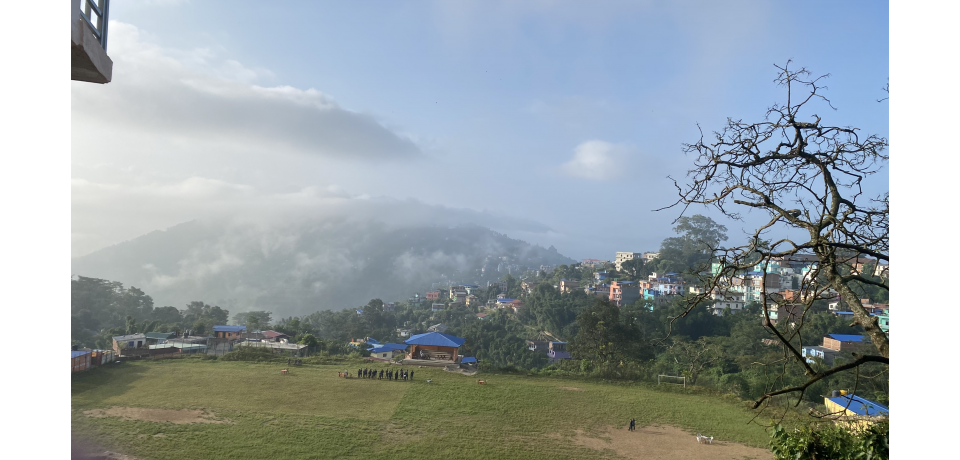Community Partnerships Empower Returning Migrants for Local Development in Nepal
Objectifs de Développement Durable Connexes et Objectifs du Pacte Mondial sur les Migrations
Migration is a decisive factor in Nepal’s landscape. Nepali migrants and the diaspora are key partners in the country’s sustainable development progress and planning. With many migrants returning to Nepal, especially due to the COVID-19 pandemic, local communities are coming together to support them as they settle back into Nepal. This isn’t always easy; one IOM study found that 83% of returning migrants who returned due to COVID-19 were unemployed upon return but seeking employment.
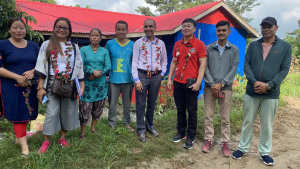
With the aim to empower returning migrants and their families to bring positive changes to their communities, the IOM-UNDP Joint Global Programme Making Migration Work for Sustainable Development (M4SD) works with national and local authorities, the private sector and the diaspora to create new (self)-employment opportunities in Nepal that can enable migrants to contribute to the local economy and sustainable development of the society. The Programme Management Unit of this Global Programme went to Nepal for a monitoring mission from 26-30 September 2022 to see the progress of the ongoing project and enhance partnerships with national and local governments.
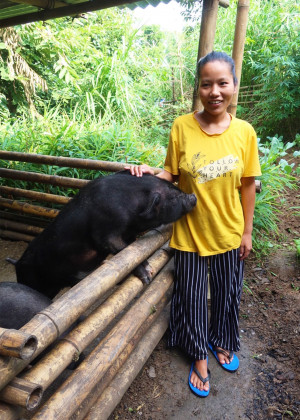
The team visited Province 1, where the project is currently implemented. Province 1 in Nepal is a region that experiences the highest rates of labour emigration, with many of these migrants forced to return due to the COVID-19 pandemic. The team visited community members participating in the project, who told the team about how they were participating in the programme and gave their opinions about how it could be improved in the future.
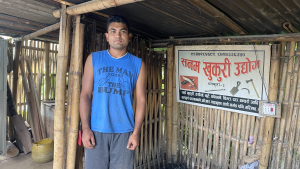
“The seed funding I received in this project helped me to build my handcrafted household goods business and buy the materials I need to make my products. In the future, I am hoping to expand my business and modernize it with new machines, and I also hope to hire some apprentices and other staff to help,” said one young man, a 23 year old who is his family’s main source of income.
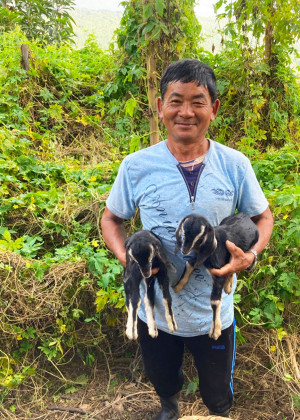
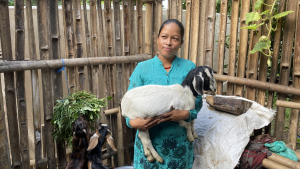
With migration more integrated into national and local policies in Nepal, especially in the area of reintegration and employment, more returning migrants are empowered to find new employment opportunities and contribute to the local economy. As of October 2022, more than 114 beneficiaries started their own small businesses in Dhankuta and Arjundhara Municipalities, and more than 180 returning migrants and unemployed youth received financial literacy training through the project.
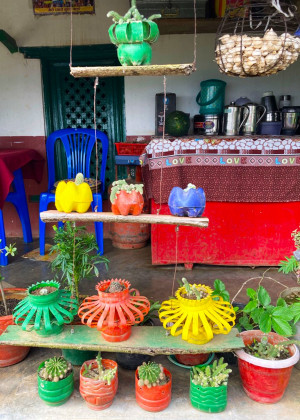
Additionally, the team visited a community-manged homestay for tourists in the Pokhara region is maintaining sustainability and self-sufficiency. This homestay was established over 5 years ago in a previous project that the current Programme has built upon called the Joint Migration and Development Initiative (JMDI). The homestay has not only managed to maintain its operations on its own after the support from the project ended, but has since expanded and now welcomes dozens of tourists ever weekend. It is an example of self-sustaining local community projects that benefit local people as well as the wider economy, thanks to insightful and dedicated local leadership.
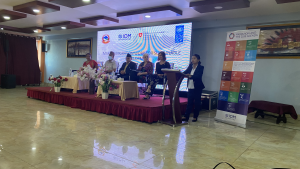
During the visit, Province 1 officials, government representatives, decision makers and local leaders came together for a Multistakeholder Meeting to discuss their provincial approaches and good practices for skilling and reskilling returning migrants, with a guest presentation from the Philippines government to explore possible initiatives in a similar nearby country that could be applicable to Nepal’s context. The discussion explored further opportunities to leverage migrants' and returning migrants' skills, resources and financial contributions to enhance Nepal's local and national development, especially in Province 1. Furthermore, Nepal’s experience of promoting socio-economic reintegration of returning migrants is feeding into global conversations about similar topics, to share their knowledge with other countries experiencing similar challenges.
Community projects such as this one advance socio-economic development throughout Nepal, contributing to the Sustainable Development Goals (SDGs) including SDG 1 on no poverty, SDG 4 on quality education, SDG 8 on decent work and economic growth, SDG 10 on reduced inequalities and SDG 17 on partnerships for the goals.
The current reintegration project in Nepal is implemented within the framework of the Global IOM-UNDP Joint Programme on Making Migration for Sustainable Development (M4SD) funded by the Swiss Agency for Development and Cooperation (SDC). The Programme is implemented in 11 countries, including Nepal, and aims to harness the development benefits and reduce the negative effects of migration for host and home communities, migrants and their family members.
Learn more about the M4SD Programme here.
